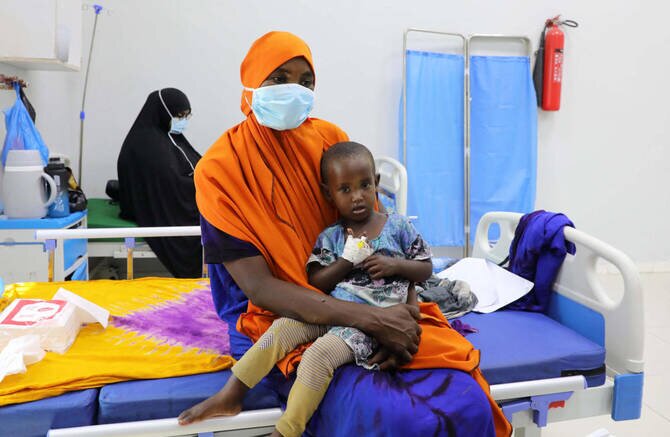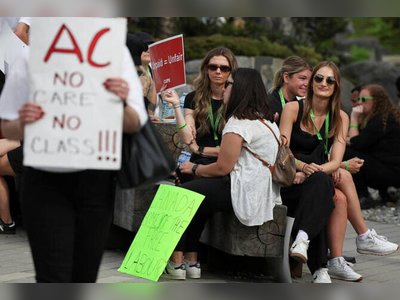
Somalia Grapples with Diphtheria Outbreak Amid Vaccine Shortages and Reduced Aid
Diphtheria cases surge in Somalia as vaccine shortages and US aid cuts strain the country's health response.
MOGADISHU: The number of diphtheria cases and fatalities has risen sharply this year in Somalia, where a constrained response has been exacerbated by vaccine shortages and reductions in US assistance.
According to Hussein Abdukar Muhidin, the general director of Somalia’s National Institute of Health, over 1,600 cases have been recorded alongside 87 deaths, up from 838 cases and 56 fatalities in all of 2024.
Diphtheria, a bacterial infection causing swollen glands, breathing difficulties, and fever primarily affecting children, is preventable with vaccines widely available since the mid-20th century.
Despite improvements in childhood immunization rates over the past decade, hundreds of thousands remain unvaccinated.
The severity of the situation is exemplified by the experience of Deka Mohamed Ali, whose four unvaccinated children contracted diphtheria after fleeing violence.
Her 9-year-old daughter recovered, but her 8-year-old son died, and two toddlers are currently hospitalized in Mogadishu.
Health Minister Ali Hajji Adam attributes the procurement difficulties to global vaccine shortages and the impact of US aid cuts, which have forced the closure of numerous health centers and halted mobile vaccination efforts.
The reduction in US foreign assistance from $765 million in the previous fiscal year to $149 million this year has severely affected Somalia’s health sector, reliant almost entirely on donor funding.
The Somali government faces criticism for its limited allocation to healthcare, with health funding reduced from 8.5% of the budget in the prior year to 4.8% in 2024, as noted by Amnesty International.
Despite these challenges, the government plans a vaccination drive but has not specified details or timelines.
According to Hussein Abdukar Muhidin, the general director of Somalia’s National Institute of Health, over 1,600 cases have been recorded alongside 87 deaths, up from 838 cases and 56 fatalities in all of 2024.
Diphtheria, a bacterial infection causing swollen glands, breathing difficulties, and fever primarily affecting children, is preventable with vaccines widely available since the mid-20th century.
Despite improvements in childhood immunization rates over the past decade, hundreds of thousands remain unvaccinated.
The severity of the situation is exemplified by the experience of Deka Mohamed Ali, whose four unvaccinated children contracted diphtheria after fleeing violence.
Her 9-year-old daughter recovered, but her 8-year-old son died, and two toddlers are currently hospitalized in Mogadishu.
Health Minister Ali Hajji Adam attributes the procurement difficulties to global vaccine shortages and the impact of US aid cuts, which have forced the closure of numerous health centers and halted mobile vaccination efforts.
The reduction in US foreign assistance from $765 million in the previous fiscal year to $149 million this year has severely affected Somalia’s health sector, reliant almost entirely on donor funding.
The Somali government faces criticism for its limited allocation to healthcare, with health funding reduced from 8.5% of the budget in the prior year to 4.8% in 2024, as noted by Amnesty International.
Despite these challenges, the government plans a vaccination drive but has not specified details or timelines.










